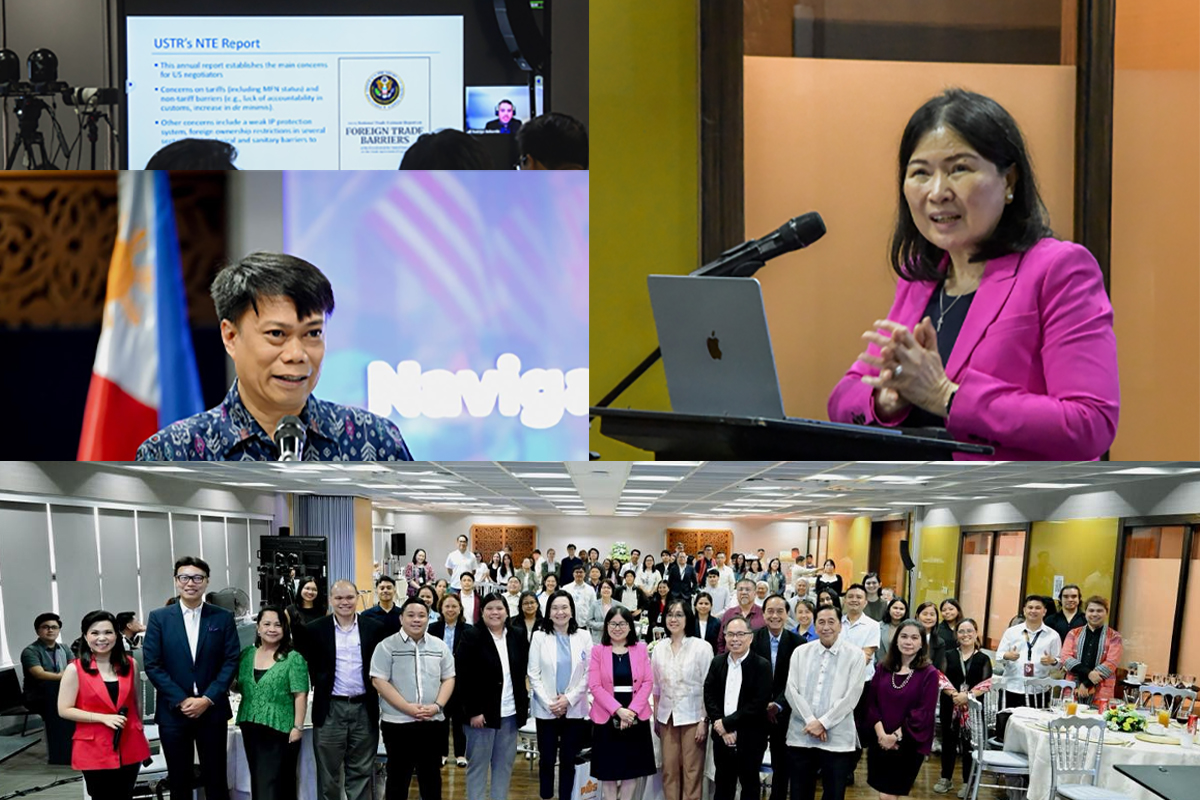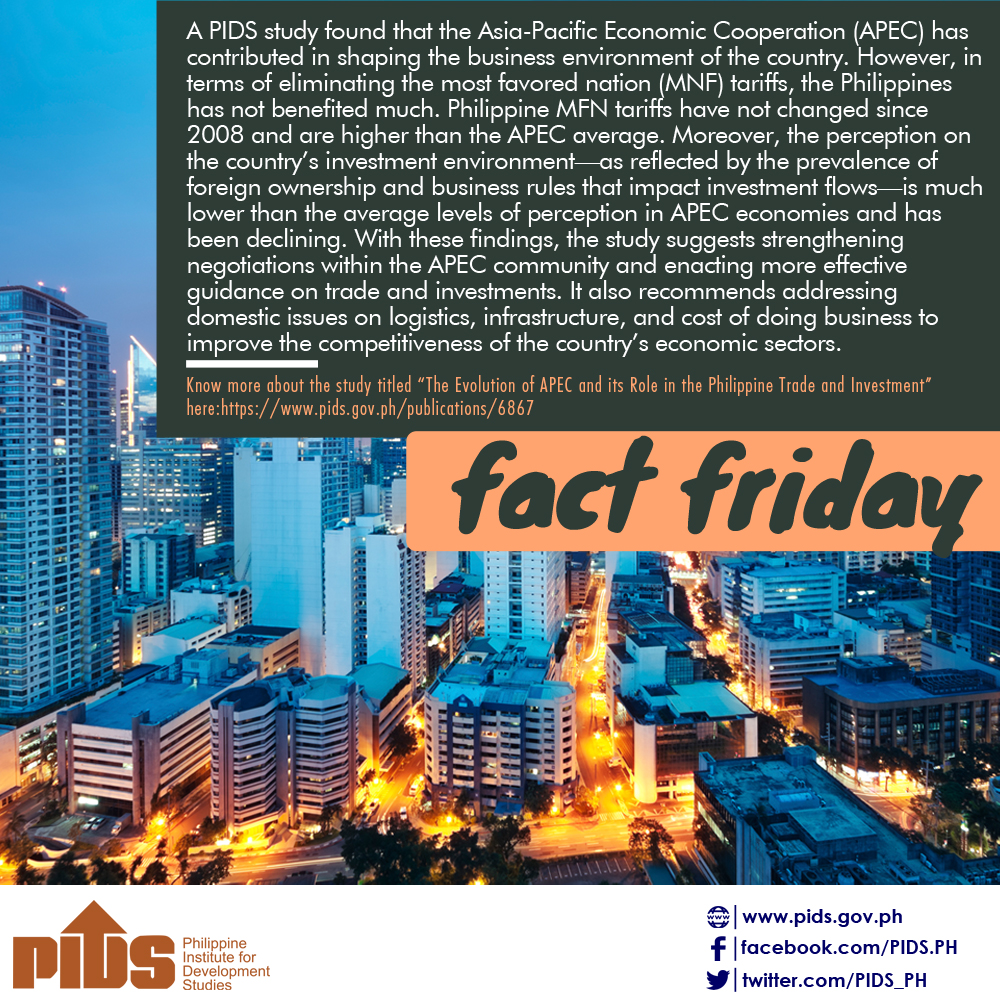The Philippines, as a member-economy of the Asia-Pacific Economic Cooperation (APEC), is presented with trade and investment opportunities that it should seize to pursue domestic reforms and create a more productive and competitive industry sector.
“The pressure is on the domestic side to make use of the transfer of ideas and concepts that is happening among APEC’s member-economies,” Francis Mark Quimba, senior research fellow at the Philippine Institute for Development Studies (PIDS) and director of the Philippine APEC Study Center Network (PASCN), said.
He presented two PIDS studies on APEC, focusing on its role in Philippine trade and investment, at a webinar organized by PIDS.
“APEC is an incubator of ideas. We get to learn important issues relevant to us beforehand through APEC. We should take advantage of our participation in APEC by getting as many ideas as we can and incorporating these in our domestic policies and trade agreements,” Quimba explained.
Among the benefits of being an APEC member-economy include access to funds for building capacities in the region and learning the best practices of more advanced countries in terms of ease of doing business and other economic reforms.
Testing ground for policies
Marie Sherylyn Aquia, division chief at the Department of Trade and Industry’s Bureau of International Trade Relations, shared the same sentiment, saying that “APEC is a vehicle to support domestic reforms and a testing ground for Philippine policies and advocacies,” she said.
“We will always be open to ideas in APEC, to learn from other economies, to drive productivity, and to build competitive industries,” Aquia, who served as a discussant during the webinar, added.
“Despite these benefits, the Filipinos’ perception of APEC is still limited.”
According to Quimba, APEC’s efforts toward trade liberalization and other issues, such as the nurturing of micro, small and medium enterprises, social equity, and economic growth, are mostly felt only in the National Capital Region.
“This signals the need to either strengthen information dissemination or to deliver programs that will effectively bring the fruits of trade liberalization outside of NCR,” she explained.











